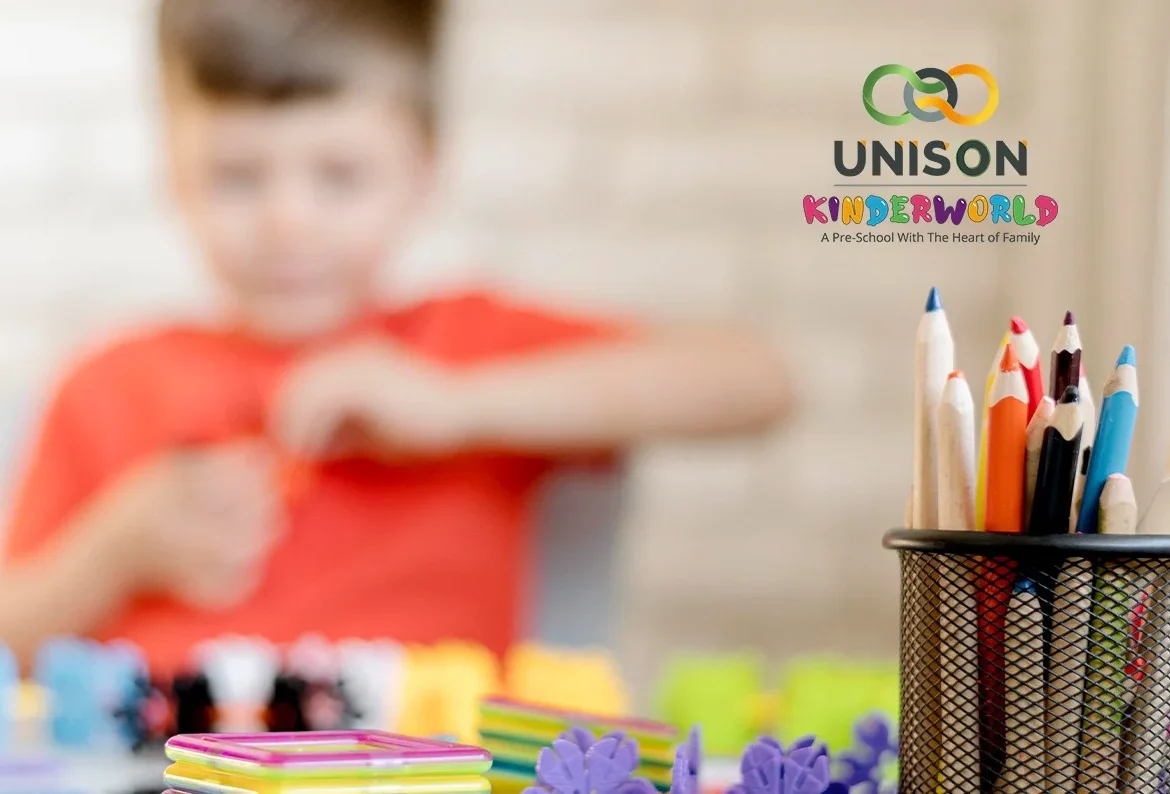In the fast-paced and demanding world of education, where academic pressures often take centre stage, the role of arts and hobbies in student well-being cannot be overstated. Engaging in creative pursuits and personal interests contributes significantly to a student’s mental, emotional and even physical health. In this blog, Unison Kinderworld the Best Kindergarten School in Pinjore will explore how arts and hobbies play a crucial role in fostering well-being among students.
- Stress Reduction and Relaxation
Participating in arts and hobbies provides students with a therapeutic outlet for stress. Whether it’s creating art, playing a musical instrument, or immersing oneself in a hobby like gardening or crafting, these activities offer a break from academic pressures. The act of engaging in a creative process or pursuing a personal interest promotes relaxation and helps alleviate the stress associated with rigorous academic demands.
- Expression and Emotional Release
Artistic endeavours provide a means for students to express themselves creatively. Through painting, writing, music, or other forms of artistic expression, students can convey their thoughts, emotions, and experiences. This outlet for self-expression not only enhances emotional intelligence but also serves as a healthy way to process and release pent-up emotions.
- Cultivating a Growth Mindset
Hobbies and artistic pursuits often involve a learning curve, encouraging the development of a growth mindset. Whether it’s learning a new musical piece, experimenting with different art techniques, or improving in a sport, students learn to embrace challenges and persevere through setbacks. This mindset extends beyond the chosen hobby, positively impacting their approach to academic challenges and personal development.
- Building Confidence and Self-Esteem
Success and improvement in arts and hobbies contribute to a sense of accomplishment, building confidence and self-esteem. Whether receiving positive feedback on a piece of art or mastering a new skill, these achievements reinforce a student’s belief in their capabilities. This boost in confidence transcends the specific activity, influencing their overall self-perception and approach to challenges.
- Enhancing Focus and Concentration
Engaging in arts and hobbies requires a level of concentration and focus that can carry over into academic pursuits. Whether it’s practising an instrument, perfecting a dance routine, or refining a creative project, students develop the ability to concentrate on a task for an extended period. This enhanced focus can positively impact their ability to tackle academic assignments with greater efficiency.
- Promoting Social Connections
Participating in group activities related to arts and hobbies facilitates social interaction and the formation of meaningful connections. Whether collaborating on a musical performance, joining a painting class, or participating in a team sport, students build bonds with like-minded individuals. These social connections contribute to a sense of belonging and support, crucial elements for overall well-being.
- Encouraging a Balanced Lifestyle
Incorporating arts and hobbies into a student’s routine promotes a more balanced lifestyle. Rather than solely focusing on academic achievements, students learn the importance of cultivating personal interests and creative outlets. This balance contributes to a holistic approach to well-being, addressing not only intellectual but also emotional and physical aspects of health.
Conclusion
In conclusion, the role of arts and hobbies in student well-being extends beyond mere leisure activities. Engaging in creative pursuits and personal interests provides students with essential tools for stress management, emotional expression, and personal growth. By fostering a balanced lifestyle that includes both academic and creative pursuits, educators and parents can contribute to the overall well-being and success of students, preparing them to face the challenges of both academic and personal life with resilience and enthusiasm.


